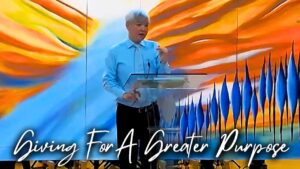Title: The Poem of Deborah
Scripture Reading: Judges 4:1-9; 5:1-5
And the children of Israel again did evil in the sight of the Lord, when Ehud was dead. And the Lord sold them into the hand of Jabin king of Canaan, that reigned in Hazor; the captain of whose host was Sisera, which dwelt in Harosheth of the Gentiles. And the children of Israel cried unto the Lord: for he had nine hundred chariots of iron; and twenty years he mightily oppressed the children of Israel. And Deborah, a prophetess, the wife of Lapidoth, she judged Israel at that time. And she dwelt under the palm tree of Deborah between Ramah and Bethel in mount Ephraim: and the children of Israel came up to her for judgment. And she sent and called Barak the son of Abinoam out of Kedeshnaphtali, and said unto him, Hath not the Lord God of Israel commanded, saying, Go and draw toward mount Tabor, and take with thee ten thousand men of the children of Naphtali and of the children of Zebulun? And I will draw unto thee to the river Kishon Sisera, the captain of Jabin’s army, with his chariots and his multitude; and I will deliver him into thine hand. And Barak said unto her, If thou wilt go with me, then I will go: but if thou wilt not go with me, then I will not go. And she said, I will surely go with thee: notwithstanding the journey that thou takest shall not be for thine honour; for the Lord shall sell Sisera into the hand of a woman. And Deborah arose, and went with Barak to Kedesh.
Then sang Deborah and Barak the son of Abinoam on that day, saying, Praise ye the Lord for the avenging of Israel, when the people willingly offered themselves. Hear, O ye kings; give ear, O ye princes; I, even I, will sing unto the Lord; I will sing praise to the Lord God of Israel. Lord, when thou wentest out of Seir, when thou marchedst out of the field of Edom, the earth trembled, and the heavens dropped, the clouds also dropped water. The mountains melted from before the Lord, even that Sinai from before the Lord God of Israel.
The account of Deborah is found in Judges 4 and 5 in the Old Testament. The Israelites had been under the control of the Canaanite king, Jabin and the commander of his army, Sisera. The Canaanites had 900 chariots of iron and ruled over Israel for 20 years. A prophetess named Deborah instructed Barak to summon 10,000 men and attack Jabin’s army. Likely fearful to comply with such a command, Barak told Deborah, “If you go with me, I will go; but if you don’t go with me, I won’t go”. She replied, “Certainly I will go with you. . . . But because of the course you are taking, the honor will not be yours, for the Lord will deliver Sisera into the hands of a woman”. Deborah and Barak then gathered 10,000 troops and attacked Sisera and his army. Barak’s troops won: “All Sisera’s troops fell by the sword; not a man was left”. Sisera himself fled to the tent of a Hebrew woman named Jael. She gave him milk to drink and covered him with a blanket in the tent. Then, “Jael . . . picked up a tent peg and a hammer and went quietly to him while he lay fast asleep, exhausted. She drove the peg through his temple into the ground, and he died. Following this battle, “God subdued Jabin king of Canaan before the Israelites. And the hand of the Israelites pressed harder and harder against Jabin king of Canaan until they destroyed him.
I want to concentrate this morning on Judges 5. I just gave you a summary of the whole event in Judges 4. Judges 5, on the other hand can be called Deborah’s poem or Deborah’s song.
Actually this poem begins with the acknowledgement that both Deborah and Barak sang this song, indicating the song they sang after the victory YHWH won. When they wanted to celebrate special occasions, like Mariam’s song after the crossing of the Red Sea and here after the defeat of King Jabin and his commander, Sisera. the Jewish people often expressed themselves in song, so the writer shifts from narrative prose to jubilant poetry. Judges 5 is just that, a jubilant poetry. Future generations might forget what the history book said, but they were not likely to forget a festive song. For instance, look at the impact of Christmas songs.
Judges 5 is written to rejoice in God’s victory over the Canaanites. The lyrics encourage the actions of Deborah and Barak, saying, “Wake up, wake up, Deborah! Wake up, wake up, break out in song! Arise, Barak! Take captive your captives. The song of Deborah also gives some more detail about the victory over the Canaanites. Judges 5:4 says, “The earth shook, the heavens poured, the clouds poured down water”. Evidently, God draw the whole 900 chariots of Sisera to the River Kishon and used a flood to disable the iron chariots of Sisera. The victory was supernatural. There was thunderstorm and flood and mud. The mud incapacitated the 900 Chariots. Chapter 5 concludes with the statement, “And the land had peace forty years.”
What can we learn from the Deborah’s poem?
- Our enemies
Judges 4:1-3 ‘Then the sons of Israel again did evil in the sight of the Lord, after Ehud died. And the Lord sold them into the hand of Jabin king of Canaan, who reigned in Hazor; and the commander of his army was Sisera, who lived in Harosheth-hagoyim. The sons of Israel cried to theLord; for he had nine hundred iron chariots, and he oppressed the sons of Israel severely for twenty years.’
It is ironic but our enemy is always magnified when we are not right with God. When we turn to sin, a period of oppression sets in. Those are usually dark days of our lives. Many people thought they could live in peace and sin, and it would be nice. They forgot to read Psalm 85:10 which says, ‘Mercy and truth are met together; righteousness and peace have kissed each other’. It is interesting that God did not let us live comfortably in peace and sin. God did not let Israel live that way either. Judges 5:8 says, ‘war was in the gates.’ Gates denotes points of access and authority. When I say there is war in your house gate, it simply means there is conflict in your house; the enemy has intruded into your house. So it can manifest in conflict among household leaders; between husband and wife. When I say there is war in the church gate, it means there is conflict among leaders of the church. And when you say enemies have appeared in the city gates, it means there is war in the city. Specifically for Judges 4, the enemy is ‘Jabin King of Canaan.’ There is another Jabin mentioned in Joshua 11 who was killed by Joshua and was also the King of Hazor. So the term ‘Jabin’ may be a title for the Kings of Hazor, as ‘Pharoah’ is for ‘Egypt’ and ‘ the Czar’ is for Russia. So definitely it is an honorific title for the leader of the largest, most powerful Canaanite City of its day. We must never underestimate the damage that the enemy can do to our lives. He is mentioned in the poetic account of Judges 5. The commander of Jabin’s army is Sisera. Sisera had 900 iron chariots. Iron is something that the Hebrews did not possess early at this period of their history. I mentioned last week that only the Philistines had iron weapons. What does it imply? Their ornaments (breast plates for horses and chariots) are made of irons. Their wheels are made of irons. 900 chariots is far too many for one Canaanite City: so this must mean that a coalition of Canaanite city-states are joined together against Israel.
The military position of Israel was nothing short of appalling: outmanned, outgunned, out positioned. Humanly speaking Israel’s lot was hopeless and helpless: which is the status of a sinner. When we sinned our station of life is always hopeless and helpless. But Israel’s real problem was not military but spiritual. Their real need was not an iron smelter but a living faith. In Jehovah God. So in the face of this militarily impossible situation God does not raise up an Othniel or Ehud but a woman.
- God often uses unlikely people and sources to accomplish His plans: women
Judges 4:4-10 ‘Now Deborah, a prophetess, the wife of Lappidoth, was judging Israel at that time. She used to sit under the palm tree of Deborah between Ramah and Bethel in the hill country of Ephraim; and the sons of Israel came up to her for judgment. Now she sent and summoned Barak the son of Abinoam from Kedesh-naphtali, and said to him, “Behold, the Lord the God of Israel, has commanded, ‘Go and march to Mount Tabor, and take with you ten thousand men from the sons of Naphtali and from the sons of Zebulun. I will draw out to you Sisera, the commander of Jabin’s army, with his chariots and his many troops to the river Kishon, and I will give him into your hand.'” Then Barak said to her, “If you will go with me, then I will go; but if you will not go with me, I will not go.” She said, “I will surely go with you; nevertheless, the honor shall not be yours on the journey that you are about to take, for the Lord will sell Sisera into the hands of a woman.” Then Deborah arose and went with Barak to Kedesh. 10Barak called Zebulun and Naphtali together to Kedesh, and ten thousand men went up with him; Deborah also went up with him.’
God often uses unlikely people and sources to accomplish His plans: in this incident it is women
This song has several female actors:
- Deborah
- Jael
- The wives and mothers of the defeated and destroyed Canaanite army
Deborah and Barak were mentioned in Judges 5:12. But Judges 5:7 emphasizes ‘Deborah.’ You noticed I said, ‘Deborah and Barak’ and not ‘Barak and Deborah.’ It seems definitely Deborah has the preeminence in Judges chapter 4 and 5. Some bible commentators called Deborah the mother of Israel. She is really quite a woman. Vernon McGee commented that it is evidence of decline when women come into position of authority. It is a sign of weakness and of a flabby age. The bible deems women as the weaker sex. Many years ago, Dr. Harry Ironside tell of a woman who was preaching in a park as he and one of his friends were walking by. His friend said, ‘It is a shame for a woman to get up and preach like that. I deplore it. She should not be doing that.’ Dr. Ironside replied, “ I agree with you that it is a shame, not that a woman is preaching but that there is not a man to take her place’
In Judges 5:3,7, the focus is on Deborah. The NT book of Hebrews emphasizes the role of Barak. They were both to be honored, as was Jael (another woman). Deborah functioned as the revealer of YHWH’s will. She is a prophetess, and Barak acted as the military leader. In addition, the prophecy of Judges 4:8 highlights the brave action of another woman; a Kenite woman, Jael. So to put it correctly, women seems to stand out in this story. Judges 4:4 says, ‘Now Deborah, a prophetess’ emphasize the heroine of the day. Deborah means ‘a bee’. This symbolized the practical quality of a busy bee which Deborah is because she has been busy for the LORD and also her sting like the bee were fatal towards the Canaanites enemies. Science confirms that of all the animal kingdom, the bee ranks among the highest in intelligence. Deborah stands out as among the wisest of all Old Testament women. Jael shouldn’t be ignored too. Because of Barak’s reluctance, Deborah prophesized that ‘the Lord shall sell Sisera into the hand of a woman’. It was Jael not Barak that killed Sisera. The honor of killing Sisera went to two women: Deborah and Jael. This should put to rest on any dogmatic statement about women’s leadership which I feel is totally inappropriate. Eve sinned at the Garden of Eden in ignorance, whereas Adam sinned out of the will.’ So I hope we honor women in church clearly, biblically and not emotionally, culturally or denominationally. Let us learn from Barak, the Judge, a leader. He wanted Deborah close by in case he needed to consult YHWH. When the victory was finally won, he wanted to sing along with Deborah, acknowledging her contribution.
- God is in control of the nations and changes their leaders according to His desires.
This poem or song is directed to the LORD, the God of Israel. Interwoven within the fabric of this poem is a threefold theme:
First, God is not localized or territorial, like the gods of the Canaanites; he is the creator of all the cosmos. Second, God’s purposes will not be thwarted; he is the commander of all creatures. Third, God uses his followers to accomplish his will; through Deborah: he is the commander who honors those who honor him.
Judges 5:4 says, ‘Lord, when thou wentest out of Seir, when thou marchedst out of the field of Edom, the earth trembled, and the heavens dropped, the clouds also dropped water.
‘LORD’ is the special covenant name for Israel’s Deity. Actually in Judges 5:4-5 we see that there are several titles for Israel’s Deity.
- YHWH (LORD)
- YHWH of Sinai, This literally means the One of Sinai. It is an archaic title for YHWH, the owner of Sinai.
- God of Israel
Notice YHWH is depicted as bringing rain from the southern mountains (Seir, Sinai). This would be unusual, because the rain mostly comes from the north. The torrent was a supernatural intensity, timing and locality such as:
- The Plagues of Egypt
- The Miracles of the Wilderness Wanderings (e.g. manna, quail)
- The crossing of Jordan River
YHWH is often depicted as ‘the Divine Warrior’. YHWH fights on His people’s behalf. When can we see YHWH fighting on our behalf? This is manifested in several characteristic ways.
- Elements of nature used in the battle
- Enemy thrown into confusion
- Sending a divine terror
So, more often than not, our victory is not the courage, strength, number or weaponry of ours but the presence of our God. It should actually be said: It is His Victory. The 900 iron chariots looks formidable but in the sight of God it is nothing. YHWH just uses rain and mud to immobilize them. Your problem seems insurmountable but they are nothing in the sight of God.
- God often calls people to step out in faith to attempt the unexpected
Judges 5:3 says, ‘Hear, give ear’. Hear and give ear are synonymous in Hebrew. It is calling to two groups of people here, to hear and give ear.
- The City State King of Canaan and their leaders
- The leaders of the tribes of Israel. They are to bless the LORD and hear and give ear. This psalm became liturgy in an annual worship service.
For the first group of people, YHWH is addressing the enemies. Judges 5:20 says, ‘They fought from heaven, the stars in their courses fought against Sisera. Angels have always been described as stars in the sky. Thunderstorms, rain are forces in heaven. I don’t believe this is merely a poem. My feeling is that it could truly be said that heaven (thunders, lightning, rain and angel), and God in heaven was against this enemy. Even though the Canaanites worshipped Baal as the god of the storm, it is clear that the LORD is the creator who controls all of his creation – including the elements of the storm. Under his hand the earth shook, the heavens poured, the clouds pour down water. The mountain quaked before the LORD.
Judges 5:15-18 says, ‘And the princes of Issachar were with Deborah; even Issachar, and also Barak: he was sent on foot into the valley. For the divisions of Reuben there were great thoughts of heart. Why abodest thou among the sheepfolds, to hear the bleatings of the flocks? For the divisions of Reuben there were great searchings of heart. Gilead abode beyond Jordan: and why did Dan remain in ships? Asher continued on the sea shore, and abode in his breaches. Zebulun and Naphtali were a people that jeoparded their lives unto the death in the high places of the field.’
God’s method has always been a man. The bible said, ‘the people volunteered.’ It is a called for voluntary sacrifice. I pray that you are truly enlightened in this point. Another translation says, ‘the people willingly offered themselves’. I pray you will offer yourselves in the service of God when He wants you. Deborah’s burst of generous admiration toward those who did so in her time is a stirring call to us to imitate their example. Their volunteerism pleased God and was specially mentioned. Jaelwas responsible for killing Sisera, the army commander of the Canaanite King. Jael’s role is also heralded: “Most blessed of women be Jael, the wife of Heber the Kenite, most blessed of tent-dwelling women”. This poem highlights the volunteerism of some tribes and condemns others for not being willing to come. Some of the tribes didn’t help and were noted by God. Their reasons are commonly known today as worldly hindrances. Reuben sent no reinforcements to the battle. They were not there to lend support when it was badly needed. They were neighbors and close by, but they did nothing. They felt like they should stay with their flocks and apparently did not trust someone else to watch their animals. They acted as if there was no war. Dan was busy in commerce. The folk in that tribe did not want to come to the battle. Asher continued on the seashore. Their fishing boats at the sea coast and the ships of Tarshish were coming and going with all the merchandise from all parts of the world, that they couldn’t afford to ignore. God’s call is less important than their financial wealth. Human nature never changes. And if you still think it is not important whether you are volunteering in the work of God, Judges 5:21 says, ‘Curse ye Meroz, said the angel of the LORD, curse ye bitterly, the inhabitants thereof; because they came not to the help of the LORD, to the help of the LORD against the mighty. Frankly I cannot identify Meroz. However Meroz signifies the enmity of neutrality.There are occasions when not to act for God is to act against God. There are occasions when a man cannot be neutral. When the Lord calls for help against the mighty, he that withholds that help is cursed. By so doing he is helping the enemies of God, and among the enemies of God he will fall. However one thing I know for sure and that is that I would not want to be an inhabitant of the city of Meroz. They did not come to help the work of the LORD and so they were cursed. Today, also there are multitude of folks who are not coming to help the work of the LORRD. 10,000 sons of Naphtali and Zebulun joined the war. The point is that the leaders led out (as they always should) and the people were willing to follow their lead. It has been suggested that Judges 5 contains both a ‘hall of Fame’ and a ‘Hall of Infamy’. Within the hall of infamy there are those who merit dishonorable discharge: God, Dan And Asher, those guilty of desertion (Reuben) and those guilty of ‘treason’ (Meroz). Within the hall of fame there are those who merit bonze stars (Ephraim, Benjamin, Manasseh and Issachar), those who merit purple hearts (Zebulun, Naphtali), and those who deserve the medal of Honor (Jael, a woman).
- YHWH is to be blessed
Judges 5:2 declares ‘Bless the LORD.’ This is a repeated refrain in this poem, which probably means it had been adapted to worship liturgy.
Why bless the LORD? Because He alone could raise up a Deborah. He alone could motivate a Barak. He alone could prevail over 900 iron chariots. Yes, Barak’s faith faltered (said he would not go unless Deborah went with him even though he had the promise that God would go with him!). But we are all “Baraks” at times – we have the sure promises but only timidly or half-heartedly stand on them or move out in complete obedience and trust in His faithful Word. Why? Because we’ve heard about the “900 iron chariots” of the “Sisera” in our life. We need to remember that when God promises, He cannot lie and so we can walk into battles against humanly impossible odds. The world would laugh at us saying how can you go against iron chariots when you yourself lack any human weapons? But we must say as Deborah declared “Today He has given your enemy into your hands.” Blessed be the name of the LORD our God. Let us bless His marvelous name forever and forever. Amen.
David writes in Psalms 20:7-8, ‘Some boast in chariots, and some in horses; But we will boast in the name of the LORD, our God. They have bowed down and fallen; But we have risen and stood upright.
Spurgeon comments: Chariots and horses make an imposing show, and with their rattling, and dust, and fine caparisons, make so great a figure that vain man is much taken with them; yet the discerning eye of faith sees more in an invisible God than in all these. The most dreaded war engine of David’s day was the war chariot, armed with scythes, which mowed down men like grass: this was the boast and glory of the neighboring nations; but the saints considered the name of Jehovah to be a far better defense. As the Israelites might not keep horses, it was natural for them to regard the enemy’s calvary with more than usual dread. It is, therefore, all the greater evidence of faith that the bold songster can here disdain even the horse of Egypt in comparison with the Lord of hosts. Alas, how many in our day who profess to be the Lord’s are as abjectly dependent upon their fellow men or upon an arm of flesh in some shape or other, as if they had never known the name of Jehovah at all. Jesus, be thou alone our rock and refuge, and never may we mar the simplicity of our faith.
Why bless the LORD? Because we will remember the name of the LORD our God. “Our God” in covenant, Who has chosen us and Whom we have chosen; this God is our God. The name of our God is JEHOVAH, and this should never be forgotten; the self existent, independent, immutable, ever present, all filling I AM. Let us adore that matchless name, and never dishonor it by distrust or creature confidence. Hearer, you must know it before you can remember it. May the blessed Spirit reveal it graciously to your soul!
How different the end of those whose trusts are different! The enemies of God are uppermost at first, but they ere long are brought down by force, or else fall of their own accord. 900 Chariot are destroyed just by muds and where is their boasted strength? As for those who rest on Jehovah, they are often cast down at the first onset, but an Almighty arm uplifts them, and they joyfully stand upright. The victory of Jesus is the inheritance of his people. The world, death, Satan, and sin, shall all be trampled beneath the feet of the champions of faith; while those who rely upon an arm of flesh shall be ashamed and confounded for ever.
The poem ends by reminding its reciters and readers that everything depends upon one’s relationship to this great and glorious sovereign LORD. The last verse shows Deborah addressing the Almighty directly. She sees the great divide in humanity established according to whether we use the life and breadth that God grants us to fight him or to love him. She voices her certainty that those who oppose him can expect eventually to share Sisera’s fate, perishing under His judgment. But the contrast is wonderful! Those who stand on God’s side because they love him are like the sun coming out in its ‘full strength’. They are a light to the entire world, experiencing the light of God within their own lives, firstly, to dispel the inner darkness of sinful disobedience, and then reflecting that light throughout the world. This promise comes to its glorious climax when the LORD declares ‘I am the light of the world. He who follows Me shall not walk in darkness, but have the light of life. Those who love him will become like him. So, Deborah’s song points us forward to the Christ in whom all the promises of God find their ‘yes’ and their ‘Amen’., the Christ of all the Scriptures, the true light of the world. And God’s victory through her provides us with a most powerful reminder of one that that no human being can do. However powerful he may imagine himself to be, no one can resist the sun rising.





